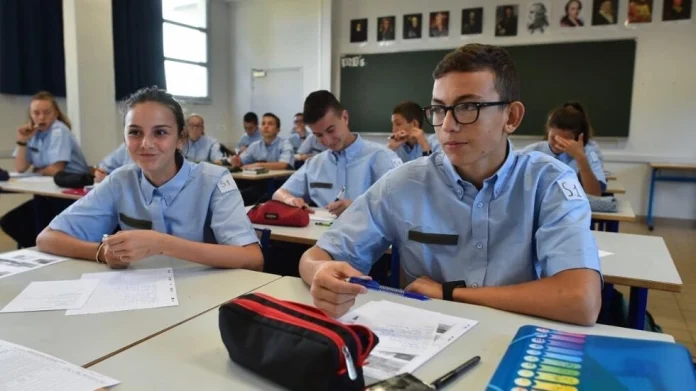Education Minister Gabriel Attal urged the expulsion of radicalised students such as Mohammed Mogouchkov after he had stabbed a teacher to death claiming allegiance to the Islamic State armed group – RFI.
Teachers at the Gambetta-Carnot school in Arras in northern France twice reported Mogouchkov to the authorities when he was a student there. However, he remained at the school and graduated, and stabbed a teacher to death on October 13.
Following a commemoration at schools across France on October 16 to honour Dominique Bernard, murdered in Arras, and Samuel Paty, beheaded three years ago, middle and high school principals reported “500 riots and protests.”
The Education Minister claimed 183 students would not return to school on November 6 after a two-week holiday in Toussaint until disciplinary committees were convened to decide whether they could return. Those were students who threatened teachers or advocated or glorified terrorism, Gabriel Attal stated last weekend.
Attal said he would consider removing radicalised students from schools altogether to make schools “sanctuaries” where teachers and students would not feel threatened.
Interior Minister Gerarld Darmanin reported more than 1,000 minors were under the ministry’s scrutiny for “Islamism.”
Some are being monitored because their family members are actively radicalised, but others have been tracked down for viewing Islamic State propaganda on the Internet. Attal has proposed special facilities for these students, but teachers and education unions have raised questions, especially about how to identify them in the first place.
School principals are being given leaflets on preventing radicalisation, which warn that each case is unique and that signs cannot be seen from an isolated perspective.
Today, staff often do not know that they can report someone and they do not know how to do it.
Some teachers know they can report, but they are reluctant to do so because they fear what the future holds for such students. The national secretary of the SE-Unsa teachers’ union, Jérôme Fournier, stated:
“Teachers send in reports like what happened in Arras, but nothing happens. That’s where we should first focus on.”
France has Centres educatifs Fermés, closed educational facilities where minors are placed under supervision as an alternative to prison until they reach the age of 16. Such institutions are not considered schools and are run by the Ministry of Justice.
After admission, the legal framework changes because radicalisation itself has no legal definition and is not considered a crime. The trade union Unsa Education stated that action should be based on education and not “shutting them [students] up definitively in their radicalisation.”
We are not judges.
